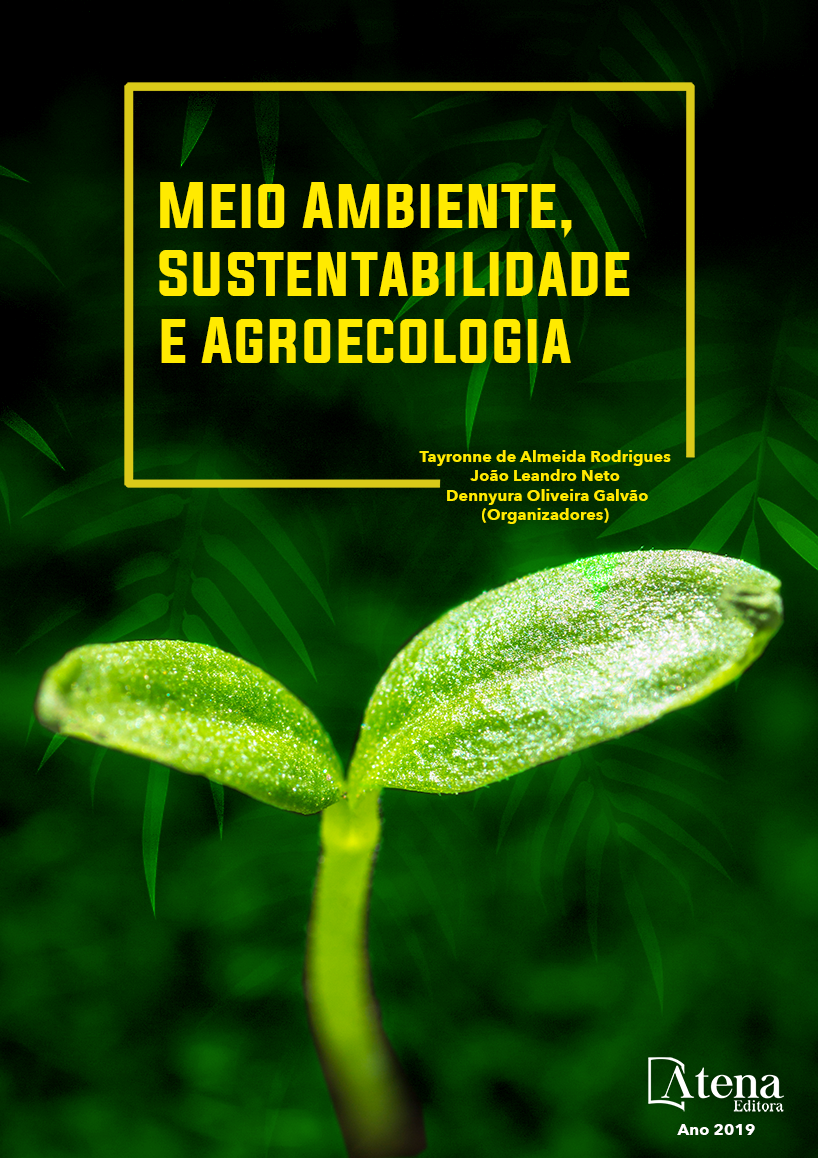
ESTUDO ETNOBOTÂNICO NAS COMUNIDADES QUILOMBOLAS: UMA AÇÃO PARA A SUSTENTABILIDADE
As comunidades quilombolas
tradicionais tem um legado vasto sobre o
cuidado com o meio ambiente e a utilização de
seus recursos naturais para fins terapêuticos.
Historicamente, as plantas medicinais são
importantes como fitoterápicos e na descoberta
de novos fármacos, estando no reino vegetal
a maior contribuição de medicamentos.
As plantas medicinais interagem de forma
significativa com os aspectos social, econômico,
cultural e ambiental, atingindo as mais variadas
dimensões de sustentabilidade. Esta pesquisa
teve como objetivo refletir sobre a contribuição
do estudo etnobotânico nas comunidades
quilombolas de forma sustentável. O uso
de plantas medicinais é uma tradição muito
difundida nas mais diversas populações,
acrescentando informações terapêuticas de
cada região, acumuladas durante muitas
gerações. A pesquisa etnobotânica é importante
pois resgata informações sobre os recursos
naturais utilizados e sua relação com o excesso
de extração e os riscos da extinção das
espécies. A riqueza cultural na utilização das
plantas medicinais está diretamente atrelada
a diversidade e preservação das plantas e do
meio ambiente, preservar a cultura é estimular a
preservação do meio ambiente e a valorização
de um povo, de uma nação, de nossa
identidade. Conclui-se que o desenvolvimento
sustentável das comunidades quilombolas
através da utilização dos recursos naturais de
forma eficiente, pode gerar renda e favorecer a
continuidade das tradições.
ESTUDO ETNOBOTÂNICO NAS COMUNIDADES QUILOMBOLAS: UMA AÇÃO PARA A SUSTENTABILIDADE
-
DOI: 10.22533/at.ed.21719160419
-
Palavras-chave: Grupos étnicos. Etnobotânica. Indicadores de sustentabilidade.
-
Keywords: Etnic Group. Ethnobotany. Sustainable Development Indicators.
-
Abstract:
Traditional Quilombola
communities have a vast legacy of care for
the environment and the use of their natural
resources for therapeutic purposes. Historically,
medicinal plants are important as phytotherapics
and in the discovery of new drugs, being in
the vegetal kingdom the greater contribution
of medicines. Medicinal plants interact in a
significant way with the social, economic,
cultural and environmental aspects, reaching
the most varied dimensions of sustainability.
This research had as objective to reflect on
the contribution of the ethnobotanical study in
quilombola communities in a sustainable way.
The use of medicinal plants is a widespread tradition in the most diverse populations,
adding therapeutic information from each region accumulated over many generations.
Ethnobotanical research is important because it retrieves information about the natural
resources used and its relation with the excess of extraction and the risks of extinction
of the species. The cultural richness in the use of medicinal plants is directly linked
to the diversity and preservation of plants and the environment, preserving culture
is stimulating the preservation of the environment and the valorization of a people,
a nation, our identity. It is concluded that the sustainable development of quilombola
communities through the use of natural resources in an efficient way, can generate
income and favor the continuity of the traditions.
-
Número de páginas: 15
- Paulyanne Karlla Araújo Magalhães
- Mauricio dos Santos Correia
- Evilma Nunes de Araujo


